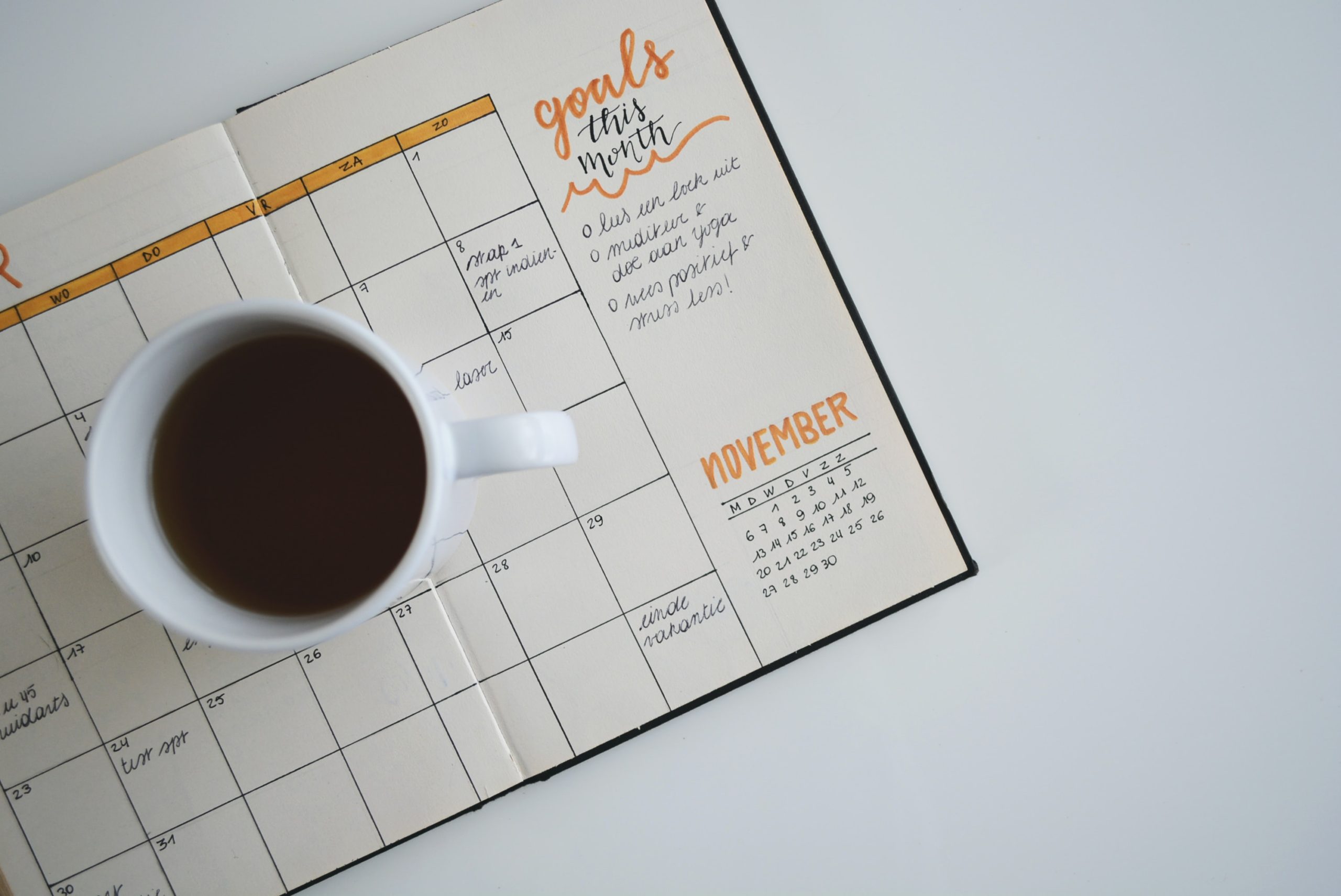You’re walking into the stadium, tickets in hand. Your boy has been excited about this day for months. As you show your tickets and walk through the gate, you can’t help but notice the big grin across his face.
He’s dreamed of seeing his favorite soccer team play live since the first day that you told him about it.
His excitement grows as you buy him some snacks and begin to head toward your seats. As you get closer to where you’re sitting, you notice everyone’s looking around confused and starting to get frustrated.
It’s not until you get to your seat that you notice why.
There aren’t any goals!
The feeling you’re having right now is just one of the many reasons why goals are important in life.
Word Math
Let’s get into some math to begin to understand a few other reasons why goals are important. We’ll start with the phrase “goals are important” and break it down as follows:
Goals are important
The word “are” is plural for is, so we could say “goals is important.” But that’s not proper English and I prefer math terms anyway. So let’s express “is” with an equals sign, because they mean the same thing:
Goals = Important
According to Google, the definitions of “goals” and “important” are:
Goals: “The object of a person’s ambition or effort; an aim or desired result.”
Important: “Of great significance or value; likely to have a profound effect on success, survival, or well-being.”
Therefore, we can draw the following conclusion:
The object of a person’s ambition or effort; an aim or desired result is of great significance or value; likely to have a profound effect on success, survival, or well-being.
Here are just a few reasons why I’ve found that setting goals is “likely to have a profound effect on success, survival, or well-being.”
1. Goals are Important for putting purpose into the mundane.
You’re most likely sitting there in a job you hate, putting off tasks that you don’t see any purpose for.
Regardless of whether or not that’s true, we all have to deal with the day-to-day boringness of life. We can’t escape this, but when we set goals, it puts these un-fun activities into perspective. You can see the long-term results you’re seeking and how each thing you do gets you a little closer.
This new paradigm makes it a little bit easier to keep going because we know that the little actions will sum up to big changes.
If you’ve ever seen a cracked slab of sidewalk, you’ve seen the power of little actions adding up over time. Usually, this happens because tree roots get under the slab. They grow so slowly that it’s hardly noticeable. Their daily growing actions would be boring to watch, but over time they add up to make a big change.
Your small, daily actions that now seem mundane can have the same effect on your long-term goals if you’ll just set them!
2. You can learn and improve a lot about yourself from them.
Let’s say you set a goal to run four times a week. This is actually my goal right now for the health aspect of my life.
At the end of the week, you’re doing a weekly review and discover that you haven’t run once. Then, as part of that review, you ask yourself why this happened. There are usually three possible reasons:
- Outside influences got in the way of your goal.
- You set your goal too high and need to start smaller to succeed.
- Running isn’t your thing.
All three of these are really helpful in different ways.
If external factors got in the way, you can ask yourself what those were to discover whether they were necessities or not. If they weren’t, then get them out of your life!
And more often than not you’re going to set goals that stretch you but are really just unrealistic. For example, I’ve been trying to work up to running four times a week but it’s been tough so I just set the goal to run once a week. By knowing myself I can set more achievable goals and make it more likely that I will succeed.
The last one is the most important factor though. If you just hate running then you’ll probably need to explore other forms of exercise. The easiest way to stay consistent at anything is to find what you like to do and do that.
This applies to work, exercise, and even relationships in some ways. Whatever aspect of life you’re setting your goal in, remember this:
Knowing yourself and doing what you love will set you up for success better than anything else you can do.
And if goals set you up to know yourself better, then they’re a great way to make you happier and thus more successful!
3. Setting goals has helped me beat depression.
Back in 2016, I’d been in my career for a year and just felt stagnant. Do you know that feeling? When you’re in a rut?
For me, it manifests itself as depression, which usually gets worse in the winter. But this time it was particularly terrible because I didn’t feel like I was going anywhere.
It wasn’t until I realized that I didn’t have any goals that I started to see how I could get out of the plateau of personal progression that I found myself on.
So I set goals to go to grad school and start running, among others.
By August of that same year, I’d completed my first half marathon and made some changes to my systems that made me a lot happier.
The following January I began my first semester of graduate school.
Already I could feel that the additional purpose that came from my goals was making me happier.
This happened again after losing my job in 2019. I had a pretty good idea of where I wanted to go (I knew that I wanted to work for myself) but I didn’t have any concrete steps to get myself there.
Not long afterward I wrote a book summary of The 12-Week Year revamped my entire goal-setting system with this new information, and everything changed.
I lost 10 pounds in 12 weeks, got a new client that doubled my income at the time, and became closer to my family through what could have been a very rough time.
According to Lao Tzu, depression is living in the past, anxiety is living in the future, and peace comes from living in the present.
I’ve found that a large reason that goals are so powerful, as long as you do a weekly review, is that they bridge the gap between past, present, and future. And especially the negative thinking patterns we get into with each of these three.
The bottom line is, if you’re depressed, try setting some goals and your outlook on life will begin to get a whole lot better.
4. They make success inevitable.
“Success is the progressive realization of a worthy goal or ideal.”
— Earl Nightingale
One Harvard Business School study compared the effect of goals on the success rates of students after graduation. The three groups were established as follows:
- Those with no goals
- Those who knew their goals but had no plan
- Those that had clear goals and plans of action
As you can guess, the third group was wildly more successful after graduating than the other two. Just 3% of students were in the last category with well-written goals and plans.
These students made 10x more than the other 97% of the class.
You might be sitting there thinking “well that’s all fine and good, but I’m no Harvard student!”
Well, guess what? Neither am I! My undergrad GPA wasn’t great and I’m not all that hard of a worker, yet. But when I set goals, I can accomplish anything I put my mind to.
I mentioned my half marathon earlier. But goals also helped me run a full marathon.
And I also talked previously about doubling my income. Well, I’ve actually done it twice since implementing my recent goal-setting and accountability system.
I’m not special, but I can be just like that top 3% of those students because I know the importance of setting goals the right way.
And so can you.
5. Goals are important to help you have a happy life.
If you haven’t noticed, all of the reasons so far have been leading up to this one. Goals make life enjoyable because they:
- Give each day purpose
- Help you have self-awareness
- Have the power to beat depression
- Make success inevitable
For that last one, it goes both ways. When you’re happier, you’re more successful, and gaining success makes you have more happiness.
When we set goals and have the first three benefits of doing so, it begins this virtuous cycle toward a good life.
I’ve personally seen that goal-setting has made a huge impact on every aspect of my life. Whether it’s relationships, finances, health, or personal development, everything about life is good because of my goals.





